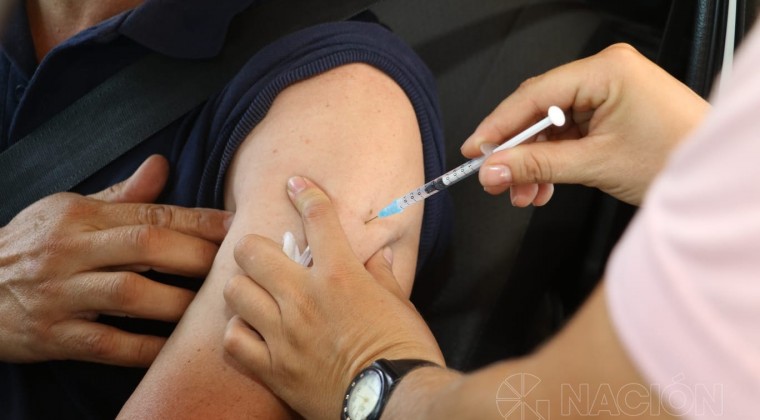The pandemic is still ongoing. Even though most countries have released all restrictions (including indoor masks), the omicron variant of SARS-CoV-2 continues to circulate.
By Fabiola Román Maldonado, PhD in Biology
However, it is worth noting that the situation in general, especially in Paraguay, has improved a lot, largely thanks to the vaccination of people.
In addition to COVID-19, influenza is present at this time of year. There is also a vaccine for it, which is administered annually with a single dose. Administration of an influenza vaccine at the same time as a second dose of a COVID-19 vaccine has been reported to produce no safety concerns and preserve the immune response to both vaccines, according to an article published in The British. Medical Journal, in October 2021.
What’s more, flu shots have a surprising health benefit: They may also prevent COVID-19, particularly in its most severe forms. This effect has been seen in a study that included more than 30,000 healthcare workers in Qatar.
Researchers found that those who received a flu shot were nearly 90% less likely to develop severe COVID-19 in the coming months, compared to those who had not recently received a flu shot.
The study, which was conducted in late 2020, before people started getting vaccinated against COVID-19, is consistent with previous work suggesting that boosting the immune system with flu shots could help the body fend off the coronavirus. SARS-CoV-2.
When vaccines against COVID-19 were not yet in circulation, scientists were interested in whether any of the existing vaccines could provide some protection against the coronavirus. However, such an effect was very difficult to measure, since people seeking to be vaccinated for other diseases could also make other decisions that reduce the risk of becoming infected with SARS-CoV-2. This difference in behavior could interfere with the measurement of the effect studied.
So, in order to arrive at accurate results, researchers at Weill Cornell Medicine–Qatar in Doha analyzed the health records of 30,774 medical workers in the country. The researchers chose that population for the study because there is probably less variation in health-related behavior among these workers than in the general population, according to Abu-Raddad, leader of the task force.
As reported by the prestigious scientific journal Nature, the researchers tracked 518 workers who tested positive for SARS-CoV-2 and compared them with more than 2,000 study participants who tested negative for the virus. Those who had received a flu shot that season were 30% less likely to test positive for SARS-CoV-2 and 89% less likely to develop severe COVID-19, compared to workers who had not. they received it.
Similar results have already been observed by researchers in Switzerland. The observation that influenza vaccines are associated with a reduction in SARS-CoV-2 infections, and also in disease severity, strongly suggests that the protection is genuine.
It is not known how long this protection would last, although the researchers of the work estimate that it lasts no less than six weeks and no more than two years. The study found that those who received the flu vaccine contracted COVID-19, on average, about six weeks after influenza vaccination, a situation that was not surprising to the researchers.
Influenza vaccines are made from inactivated viruses. It’s not entirely clear why flu vaccines would also protect against COVID-19. According to Mihai Netea, an infectious disease specialist at Radboud University Medical Center in Nijmegen, the Netherlands, vaccines train the immune system to recognize specific pathogens but also speed up broad-acting antiviral defenses. The latter could be linked to the observed effect.
As the months go by, more information is available, which helps us to live more safely with SARS-CoV-2, a virus that is here to stay.


















